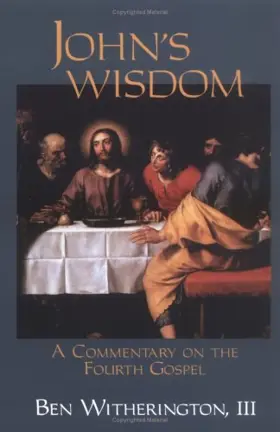

John's Wisdom: A Commentary on the Fourth Gospel
Pages
411 pages
Publisher
Westminster John Knox
Published
1995
ISBN-13
9780664256210
Jesus as depicted in the Fourth Gospel is remarkably dissimilar to the Jesus found in the synoptic gospels. In this book, Witherington places the Gospel of John within its proper literary, historical, social and theological contexts. What emerges is a compelling argument that the Gospel of John has an agenda for mission, in addition to concerns for discipleship and community life.
Reviews
.
On the assumption that the Gospel of John's "great debt to the wisdom tradition . . . has been underappreciated," Witherington proposes "to read this Gospel in the light of Jewish and early Christian wisdom material, ranging from Proverbs to the Wisdom of Solomon to the early Christian christological hymns, and then to help the reader see how some of this material can be applied in church settings today" (p. vii). His effort is best described as a thematic commentary, in that it is part commentary and part specialized monograph. The book's dual purpose carries with it certain risks. The commentary format creates the expectation that Witherington will say something, if not about every verse, at least about every paragraph in the Gospel of John. This requires him to deal not only with passages that may contribute to his main thesis, but also with passages that do not particularly do so. Not even Witherington claims that his wisdom theme is evident in every incident or rhetorical exchange in John. Such a claim would be hard to defend, in view of the fact that the word "wisdom," which occurs once in Mark, three times in Matthew, and six times in Luke, never appears in John at all! Not surprisingly, Witherington devotes considerable attention to the prologue, sometimes making his case as if the Gospel began, "In the beginning was Wisdom" instead of "In the beginning was the Word." He consistently treats “word” and “wisdom” as interchangeable, and only once that I noticed did he address directly "the old problem of why logos and not sophia is used here" (p. 53). He finds it doubtful that "the reason is because Jesus was a male," and (to his credit) does not try to use his thesis to decide God's gender, or the issue of feminism vs. patriarchy.
[Full Review]


